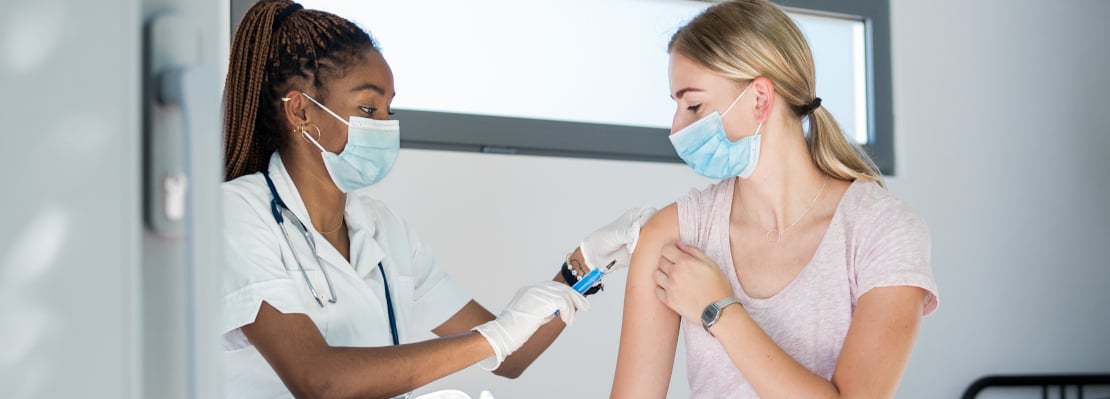As the COVID-19 coronavirus vaccinations are being distributed and given, scammers, fraudsters and con artists are using fear, uncertainty, doubt and ignorance to try to take advantage of this situation to steal account information and money from vulnerable people who may be tricked into believing disinformation. Following are points about COVID-19 vaccinations to keep in mind to help guard yourself against scams.
- Do not give credit card or financial account or any other form of payment or financial information to suspicious callers about COVID-19 vaccines or treatments—this includes passwords, email addresses, phone numbers, and your Zelle® confirmation number. Also, do not give out other types of personal or medical information, including your date of birth, home address, or Social Security number. Scammers can use your information to steal from your accounts, illegally bill federal health care programs, and commit identity theft.
- Be very careful about clicking any links in any emails about COVID-19 and vaccinations unless they come from trusted people, the government or organizations that you know.
- Do not respond to any solicitations coming to you about the COVID-19 vaccine from any source. Don't provide information to telemarketing calls, text messages, social media messages and advertisements, or door-to-door visits about COVID-19 vaccinations or treatments. Hang up on automated robocalls without speaking.
- Do not click on online advertisements or attempt to buy coronavirus vaccine or any kind of “miracle” treatment on the internet, including from an online pharmacy. These are bogus offers from crooks. As one example, some businesses have fraudulently sold vitamin D products as a treatment for COVID-19 and other diseases. Please refer to county, state or federal websites for more information or consult your personal physician if you have questions about purchasing purported cures or vaccines. Always be very careful about shopping on unfamiliar websites.
- Doses of coronavirus vaccine that were purchased by the U.S. government will be provided to the public at no cost. But healthcare providers, such as pharmacies, may charge an administration fee and then have that fee reimbursed by insurance companies, not from you personally—no vaccination provider should be asking you directly for money. Uninsured patients may also have their vaccination cost covered by another party, such as the government.
- There is no cost to put your name on a vaccination registration or waiting list and early access is based on government protocols for who gets the vaccine and in what order, such as health care workers, nursing home residents, first responders, and those 65 years old and older. These protocols will expand to cover more types of people as more of the vaccine becomes available.
- You cannot pay a fee to “jump the line” and get early vaccine access; it is not allowed under any circumstances.
- For several months, vaccines will be available in limited quantities, so only trust local information from reliable sources—such as your personal doctor or county health department—for news and instructions.
- County and state governments will be providing information on vaccination availability on an ongoing basis. Government websites should be your starting point for information on when vaccinations are available and how to register for them. Some useful websites are listed below.
More sources of COVID-19 vaccination information and scams
If you think you have been contacted by a COVID-19 scammer, collect any information you can about them (names, phone numbers, websites) and report it to the Federal Trade Commission.
Other information to help protect yourself



